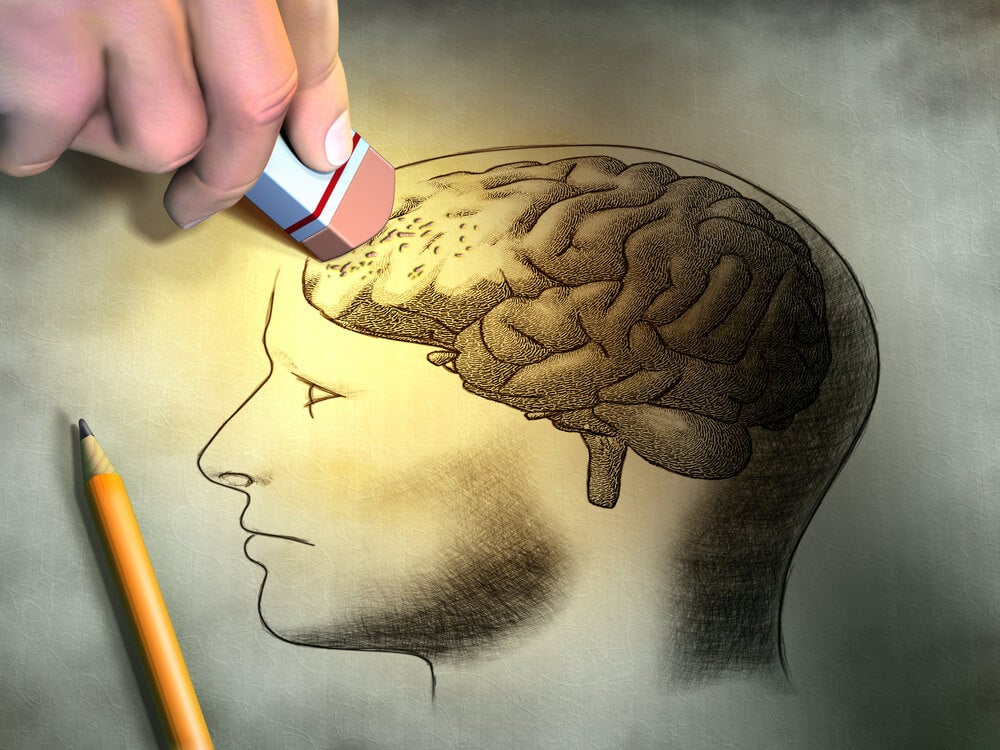Is it possible to inherit a mental illness? This may be a question you may have asked, especially if there’s a case of mental illness in your family. The fact is that several studies show that some disorders have a significant genetic burden.
However, the research has not yet been able to decipher all questions about how this genetic burden acts or influences. Science is moving slowly. Gradually we learn more about the hereditary transmission of mental illness, although much remains to be discovered.
- Today we understand disease.
- Or rather health in general.
- As a product of the interaction between genetics and the environment.
- We also know that in many cases what is inherited is not the disease.
- But the susceptibility to develop it.
Is it possible to inherit a mental illness? This is one of the most common questions asked by people whose family members have a mental disorder.
The onset of the disease will depend on many factors. This happens even in the case of a dominant legacy. For example, it can go your whole life without the disease manifesting if there are no triggers (the spark that ignites the wick that carries the genetic load).
That way, we’re talking about probabilities. Thus, there is no certainty that the child of a person with mental illness will develop the same disease; on the other hand, it is possible to predict that the chances of developing this disease will be higher and if the father and mother have the same disease, the chances are even greater.
Let’s see below how likely you are to inherit some of the most well-known mental illnesses.
Schizophrenia is a serious mental illness that affects certain brain functions, such as thinking, perception, emotions, and behavior; as to their symptoms, they are classified as psychotic disorders, those in which patients lose touch with reality.
It is estimated that 1% of the population suffers from schizophrenia, it is also estimated from various studies that among the descendants of schizophrenic parents 40% will manifest the disease, another 15% will present psychic abnormalities, although this is not the case. same disease.
In bivitelin twins, the incidence rate remains. Among the univitelins, the probability is 80%. It is considered to be a recessive inheritance, with incomplete penetration of the carrier gene or genes.
Bipolar disorder is a serious illness from the associated danger and disability, it is also known as manic-depressive or manic depressive disease, people with bipolar disorder are characterized by unusual mood swings, in mental illness is one of the most feared.
Do people with bipolar disorder sometimes feel very happy and excited?And they’re much more energetic and active than usual. This is called a manic episode. At other times, people with bipolar disorder feel very sad and “depressed,” with little energy and are much less active than usual. This is known as the depressive episode.
Bipolar disorder affects 0. 4% of the population. The risk of contracting the disease increases when parents have it. Among univitelinos, the probability is 95%. It appears to be a type of dominant inheritance, with incomplete penetration of the gene.
Most deep oligobrains (80%) they are due to exogenous causes, i. e. accidents or diseases in intrauterine life or early childhood, so they are not hereditary.
In oligofrenes of mild or medium intensity 80% are related to inheritance, these are children of people with a low IQ, when the father and mother are oligopenne 80% of children have mental retardation, only 40% present it when only the father or mother is oligophene.
A negative factor is that oligofrens often come together and, as a result, the probability associated with genetics increases. In fact, it is very difficult to find couples where the difference in IQ is very important. The transmission mode is recessive. Inheritance of mental illnesses such as oligophrenia is possible, although most cases are due to exogenous causes.
Neurosis is an abnormal reaction to experiments, the result of circumstances and therefore unrelated to genetic burden. The burden of neurosis in the same family tree can be explained by “false inheritance”. It is a reflex produced as a result of an “emotional contagion”. in a family context conducive to it.
There is a hereditary history in 70% of neurosis cases and the probabilities with univithelin twins are 83%. However, with bivitelino twins, they drop to 23%. So the “emotional contagion” assumption? it would be questionable.
In the undisputed psychogenesis of neurosis there seems to be a constitutional background, that is, there seems to be a predisposition to react neurotically to pathogenic experiments, as we see yes, it is possible to inherit a mental illness, some are more Twin studies and family stories have shown that mental illnesses have a variable genetic contribution.

